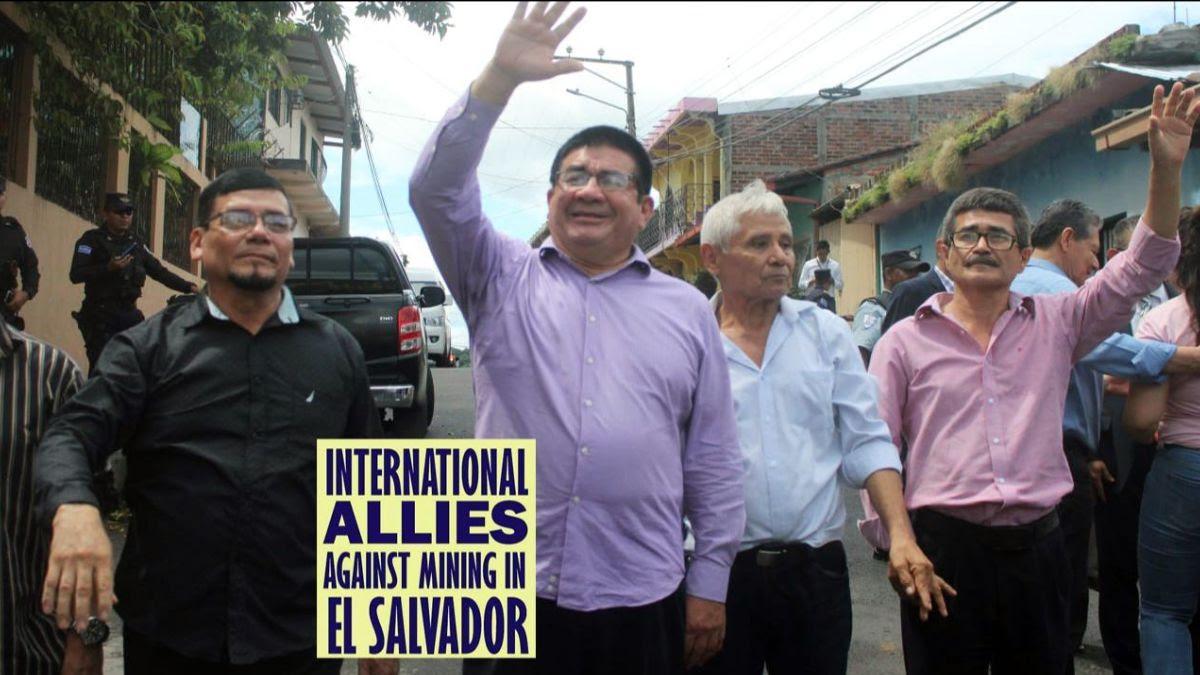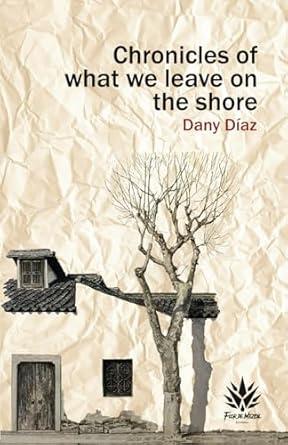- Home
- About Us
- Issues
- Countries
- Rapid Response Network
- Young Adults
- Get Involved
- Calendar
- Donate
- Blog
You are here
IRTF News
News Article
October 18, 2024
Juan Antonio López was a prominent environmental defender, anti-corruption activist, and community and faith leader in Tocoa, Honduras. He was shot and murdered by an unidentified hitman in his car after attending a religious event at a local Catholic church.
This article remembers his firm activism and life.
IRTF also wrote a letter about him as a part of our Rapid Response Network.
News Article
October 18, 2024
Since early 2023, IRTF has been involved in an international solidarity campaign to drop bogus criminal charges against five environmentalists in El Salvador. After 20 months of petition gathering, calls to the US State Departement and US Embassy, a sign-on letter from the US Congress and other advocacy efforts, we are happy to report that the Santa Marta 5 have been freed!
The five prominent community leaders (Miguel Ángel Gámez, Alejandro Laínez García, Pedro Antonio Rivas Laínez, Antonio Pacheco, and Saúl Agustín Rivas Ortega) were all instrumental in the successful campaign to save El Salvador’s rivers from the threat of gold mining. With a unanimous vote in El Salvador’s National Assembly in March 2017, El Salvador became the first nation on earth to ban all metallic mining.
Since they were arrested in January 2023 on politically-motivated charges, IRTF has participated in an international campaign spanning 31 countries demanding that the bogus charges be dropped and denouncing the political motivations behind their detention given the lack of evidence presented by the Salvadoran Attorney General’s office.
News Article
October 18, 2024
José Rubén Zamora is the founder and publisher of elPeriódico, a leading newspaper in Guatemala that aggressively investigated government corruption.
He was convicted last year of money laundering, sentenced to as many as six years in prison and fined about $40,000. He called the charges politically motivated and said they were retaliation for his newspaper’s focus on public corruption. The case became a sign of crumbling democracy in Guatemala and a symbol of threats against press freedom across Latin America.
After the election of Bernardo Arévalo, an anti corruption crusader, and 810 days in a cramped cell, he was released to house detention on Saturday night as he waits to find out whether he will be granted a new trial.
The IRTF wrote several letters about Zamora as part of the Rapid Response Network, these are two of them:
Event
October 16, 2024
John Carroll alum and Honduran activist Dany Díaz (2011 graduate) will be receiving the Young Alumni Award from the JCU Alumni Association. As part of his visit, Dany will be doing a reading from his recent book of personal essays Chronicles of What We Leave on the Shore about his life in Honduras and elsewhere and answering audience questions, details below. You can attend in person or on Zoom (to get the Zoom link, please click on the Register link below). The event will be at 7 pm in Donahue Auditorium, Dolan Science Center, John Carroll University, University Heights, OH.
https://advancement.jcu.edu/register/author-series-mejia
News Article
October 12, 2024
In Guatemala, Mayan Ixil youth are reclaiming their cultural identity and resisting socio-political challenges through a transformative civic-political training program supported by the AFSC and the Chemol Txumb’al youth network. This initiative empowers young leaders to reflect on historical injustices, understand their roots, and take action for their communities' well-being. The program addresses topics such as Ixil history, migration, and the impact of extractive industries, while fostering cultural preservation through traditional practices like community gardening and Mayan ceremonies. By equipping the youth with knowledge and agency, it is nurturing a new generation of leaders dedicated to the Ixil people's resilience and future.
News Article
October 9, 2024
Five environmental activists who helped secure a historic mining ban in El Salvador are facing life imprisonment for an alleged civil war-era crime.
The only evidence is a witness who strongly changed his testimony during the pre-trial hearings. No body or weapon has been found.
Since sweeping to power in 2019, Bukele and his allies have taken steps to “effectively co-opt democratic institutions”, replacing independent judges, prosecutors and officials with political allies, according to Human Rights Watch.
In a letter to the government in March 2023, a group of UN special rapporteurs and the vice-president of the UN working group on arbitrary detention, said: “We fear that the case is an attempt to intimidate those who seek to defend the environment in the country, and especially those who defend human rights from the negative impacts of mining.”
News Article
October 3, 2024
Honduras is currently facing at least USD 14 billion in claims from foreign and domestic companies. This is equivalent to roughly 40 percent of the country's GDP in 2023 and almost four times its public investment budget in 2024. A new study on this avalanche of claims found that most investors are revolting against Honduran efforts to reverse or renegotiate corrupt deals made under Hernández, which were often damaging to the public interest and local communities.
Juan Orlando Hernández is the Honduras former drug trafficking and corrupt president who was illegally reelected through fraud and with the help of the US.
Now a private toll booth operator - backed by major US banks, including JP Morgan Chase Bank and two Goldman Sachs funds - is suing Honduras in international arbitration. They are demanding 180 million dollars, more than four times what the company has reportedly invested. If these investors are successful, the economic burden on the country will only deepen the displacement crisis that is driving Hondurans north.
RRN Letter
September 26, 2024
Carlos Andrés Ascué Tumbo, a 30-year-old university student and father of a young daughter, had been receiving threats from illegal armed groups. Deeply committed to his community at the Pueblo Nuevo Indigenous Reservation in the Indigenous territory of Sa’th Tama Kiwe, “Lobo,” as he was affectionately known by friends and family, was serving as coordinator of the Indigenous guard in the Indigenous territory of Sa’th Tama Kiwe in northern Cauca Department.
The national office of the Human Rights Ombudsman was aware of the particular dangers faced by Indigenous and other human rights defenders in northern Cauca. The office had already issued early warnings because of several illegal armed groups operating in the area and threatening community leaders. Carlos Andrés Ascué Tumbo had filed a complaint with the Attorney General's Office, made a statement to the Public Prosecutor's Office, and requested individual protection measures from the National Protection Unit (UNP). The UNP, however, did not assess the seriousness of his situation and did not grant him protective measures.
On his way to pick up his wife and daughter from a swimming class on August 29, he pulled into a gasoline service station at about 4:30pm. In broad daylight in the El Pescador district of Caldono municipality, assailants gunned him down, and then sped away on their motorcycles.
The University of Cauca issued this statement: “The death of this renowned anthropology student from our alma mater comes at a time when the consequences of this absurd war continue to cause great grief. Therefore, reiterating our commitment to life and peace, we demand real guarantees for the protection of life, not only of our university community, but of every inhabitant of Cauca. We cannot allow the dreams and lives of those who fight for a more just and humane country to continue to be cut short. Men and women, young people, adolescents and children of this land need and deserve to live in a place where hope is not just another victim of the conflict, but a force capable of transforming the future.”
Carlos Andrés Ascué Tumbo, ¡presente!
RRN Letter
September 25, 2024
Caribe Afirmativo, a Colombian LGBTQI+ advocacy organization, reports a growing wave of systemic violence toward the LGBTQI+ community across the country. The organization is based on the Caribbean coast in Barranquilla, the capital city of Atlántico, the department with the most killings of LGBTQI+ persons in Colombia. So far this year, they have documented at least 31 killings, with at least 16 victims who were transwomen.
In just one week, three LGBTQI+ persons were killed, two of them in Atlántico Department: Armando René Torres Bohórquez (on August 29 in Atlántico Department), Germán Ríos Cifuentes (on September 1 in Valle del Cauca Department), and Valeska London (on September 4 in Atlántico Department).
In addition to our request to officials in Colombia that both the material and intellectual authors of these assassinations be found and prosecuted, we are also urging that the government:
-work to end the culture of impunity of crimes committed against members of the LGBTQI+ community
-create a culture of economic and social inclusion to integrate transgender individuals so that they can live and work in less vulnerable conditions
-effectively comply with the creation of the mechanism for monitoring and preventing violence and discrimination against LGBTQI+ people, as established in the National Development Plan
RRN Letter
September 24, 2024
Since 2017, Amnesty International and the Inter-Church Commission for Peace and Justice have documented a string of attacks and threats against Jani Silva, president of the Association for the Integral Sustainable Development of the Amazonian Pearl (ADISPA), a community organization managing the Peasant Reserve Zone of La Perla Amazónica in the municipality of Puerto Asís, Putumayo Department. State protection under the National Protection Unit (UNP) has proven insufficient to prevent at least seven different security incidents against her. Since January 2020, she has experienced persecution, illegal digital surveillance, death threats, shots fired into her home, and she uncovered a plan for her own assassination.
On September 10, Jani Silva received a phone call threatening her life, in which the caller described a truck that was provided to ADISPA by the UNP and explicitly stated plans to blow it up with her inside. Later that same day, unknown men with high-speed motorcycles were seen on two occasions prowling around Jani Silva’s house and ADISPA’s office in the town center of Puerto Asís.
Given that in 2023 more environmental defenders were killed in Colombia than in any other country in the world, we are deeply concerned for the safety of Jani Silva.


